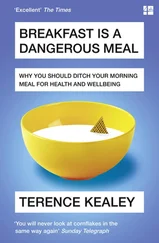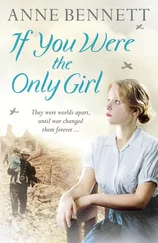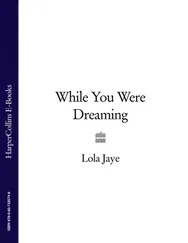SD>> Karma’s a bitch.
LL> U said it, baby.
SD>> Nice/catch up.
LL> Ja, B careful now.
SD>> Always.
LL> Seriously. Watch yourself.
SD>> I am being serious. I’m paranoid, always careful.
LL> LOL! Funny cos iz true. X
The green rabbit disappears.
* * *
Kirsten’s left thumb is bleeding. She hadn’t realised you could get a (double) paper cut from double-walled cardboard. After swearing a great deal in every colour she can think of, she kicks the box that had inflicted the damage. She wants it to go flying, but it’s heavy and all she manages to do is nudge it off the pile. It lands with a thud of disappointment on the concrete floor.
The corner of a white card sticks out from underneath the box. She pries it loose. Smaller than the palm of her hand, tacky double-sided tape on the back: it’s the kind of card that gets sent with flower deliveries. The illustration is of a lily, printed in sparkling pink ink (Strawberry Spangle), which she bleeds on.
Inside, in a script she doesn’t recognise, it says ‘CL, yours forever, X, EM.’
Her watch beeps. It’s a bump from Keke, wanting to meet up for drinks next week. Says she has something to celebrate. Somewhere dark and clubby, she says.
‘Affirmative,’ Kirsten replies, ‘Congratulations in advance for whatever we’re celebrating. Let’s bask in our mutual claustrophilia.’
Bumps, or chatmail messages, are getting so short nowadays they can be impossible to textlate. Sometimes Kirsten uses the longest word she can think of, just to rebel against the often ridiculously abbreviated chat language.
She realises that this probably makes her old, and wonders if it is the equivalent of wielding a brick for a cellphone. Even her Snakewatch is now old technology. She doesn’t have the energy to upgrade devices every season. Maybe she is more like her mother than she has ever realised.
She flicks the card back into the box and sucks the side of her thumb, where the skin is dual-sliced, and waits for the red to stop. She feels hung over, even though she didn’t drink that much the night before. Another sign of aging? She sometimes feels like she’s ninety. And not today’s ‘90 is the new 40!’ but real, steel, brittle ninety. Grey-hair, purple-rinse, hip-replacement ninety.
So far she had flipped through what felt like hundreds of files and documents, most written in jargon that she doesn’t understand. She had to page through a library of notes before she found her birth certificate. Onionskin paper, slightly wrinkled, low-resolution print, ugly typography, but there her name was in black and white: Kirsten Lovell; daughter of Sebastian and Carol Lovell. Born on the 6 thof December 1988 at the Trinity Clinic in Sandton, Johannesburg.
So she does exist, she thinks, even though it should seem clear. Cogito ergo fucking sum.
Perhaps the autopsy report was wrong? They could have mixed up her mother’s body with someone else’s, easy enough to do when so many people are dying of the Bug. Or the discharge note from the hospital could have been wrong; they got the date of her hysterectomy wrong. A sleep-deprived nurse on her midnight shift could easily have written down the wrong year. Perhaps absent-mindedly thinking of her own surgery, or the birth of one of her own kids.
Getting tired of hunting through the boxes now, she finally finds the one she had come all this way for. It’s a bit squashed on the edges, and grubby with handprints. Sealed with three different kinds of tape, it has clearly been opened and closed a number of times over the years. ‘PHOTO ALBUMS’ is scribbled on the side in her mother’s terrible handwriting. When Kirsten catches sight of the scrawl she feels a twinge of tenderness and has to sit down for a breath.
She opens the box with a little more care than she had the others. Twelve hardcover photo albums take up the top half of the box, and the bottom is lined with DVDs. They only started taking digital photos when she was in high school, so it was safe to say what she was looking for would be in one of the paper albums.
There is a specific picture of herself as a baby that she wants to find. She guesses the photo was taken when she was around 6 months old. Somewhere outside in the sun with a tree, or trees, in the background. Her hairless moon of a head decorated with a silly, fabric-flowered headband. Back slightly arched and an arm outstretched to someone off-camera, a pale pink starfish for a hand.
Slowly she pages through each album, trying to not get caught in the webs of emotion they contain: Rhubarb crumble, ash grey, Peppermint (the colour, not the taste), coconut sunscreen, soggy egg sandwiches (Sulphurous Sponge), some kind of flat sucker with a milky taste – butterscotch? Butterscotch with beach-sand. Marshmallow mice – available only at a game-hall tuckshop at a family holiday resort in the Drakensberg. Ammonia, baby oil, cherry cigars. Silk carnations, flaking slasto, ants that taste like pepper. She snaps the last album shut and looks for another box of photos.
This can’t be all there is, she thinks. We’re missing 3 years. The first 3 years.
Kirsten, now driven by a fierce energy, attacks what is left of the boxes. Her mind races with possible explanations. Maybe they didn’t own a camera. Maybe they believed it was bad luck to photograph a baby. Maybe the photos were lost, stolen, burnt in a fire. There are no baby clothes either. No baby toys, but she’s sure they must have been given away – there were hundreds of orphans in those days – abandoned babies: unheard of today. She feels wet patches bloom under her arms as she scrabbles through the contents. Her hair begins to bother her and she ties it up roughly into an untidy bun. As the boxes start to run out, her anxiety builds. She finds no more albums, but in the second last box she opens she discovers some framed photographs. Of course! She thinks, it was framed! That’s why it’s not in an album. A calming finger on her heart.
And there it is, almost exactly how she remembers it. She clutches it, searching it for detail. The heat of her hands mist the silver frame: heavy, decorative, tasteful. The picture not exactly in focus, but close enough. A blue cotton dress (Robin Egg) puckered by the tanned arm holding her up. She has no aunts, no grandmothers; that must be her mom’s arm, although she doesn’t recognise it.
She expects the photo to make her feel some kind of relief, but it has the opposite effect. Some small idea is tapping at her, whirring in her brain. Something feels off the mark. She scans the picture again.
What is it? The texture. The texture of the paper is wrong. It isn’t printed on glossy or matt photo paper, the way it would have been in 1987. It’s grainy, pulpy. Kirsten turns the frame over in her hands and pries the back loose. A quarter of a glamorous cigarette print ad stares back at her, its bright blue slashing her vision.
Kirsten turns it over and over again, battling to understand, not wanting to understand. It’s not a photo of her. It’s not a photo at all, but a cutting from a magazine. The autopsy diagram flits into her mind with its careless cross over her mother’s lower abdomen.
She glances over at the cheap looking birth certificate, and then down to the piece of paper in her hands. Perhaps her photo was published in the magazine for some reason? Living & Loving, the cutting says, ‘New Winter Beauties,’ July 1991. She had been three years old when this issue had been printed.
Journal entry
12 March 1987
Westville
In the news: Sweden announces a total boycott on trading with South Africa. Les Miserables opens at Broadway.
Читать дальше
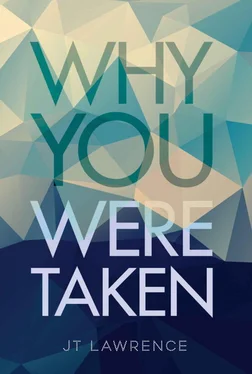



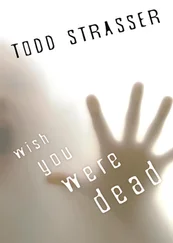
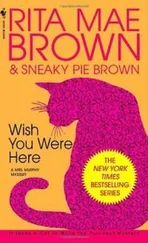
![Питер Джеймс - Wish You Were Dead [story]](/books/430350/piter-dzhejms-wish-you-were-dead-story-thumb.webp)


